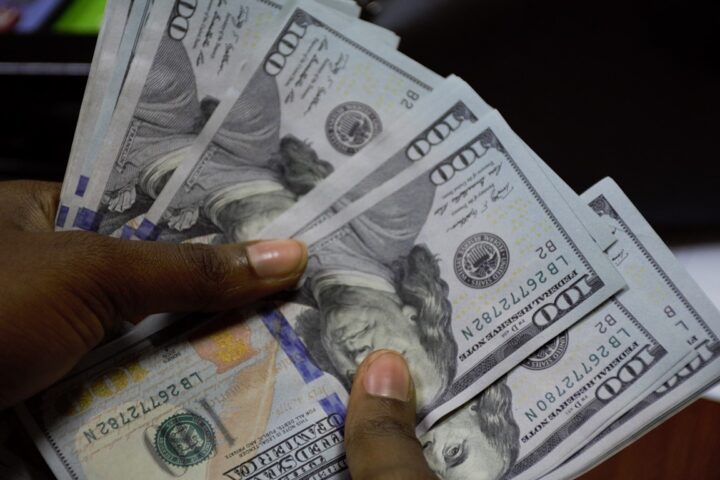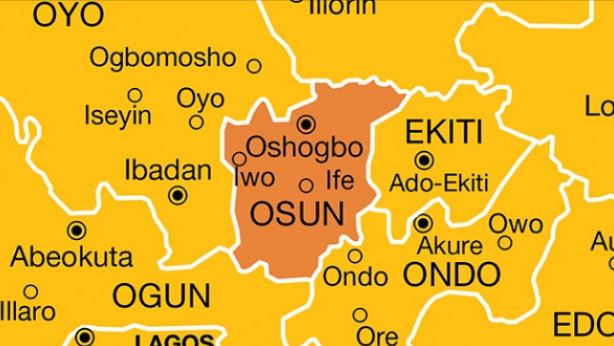Foreign investors ignored 26 states in Nigeria in the whole of 2020, a report released by the National Bureau of Statistics has shown.
The capital importation report recently published by the National Bureau of Statistics details the value of fresh investments that flowed into the Nigerian economy in 2020.
The 26 states are: Bauchi, Bayelsa, Benue, Borno, Cross River, Delta, Ebonyi, Edo, Ekiti, Enugu, Gombe, Imo, Jigawa, Katsina, Kebbi, Kogi, Kwara, Nasarawa, Ondo, Osun, Oyo, Plateau, Rivers, Taraba, Yobe, and Zamfara.
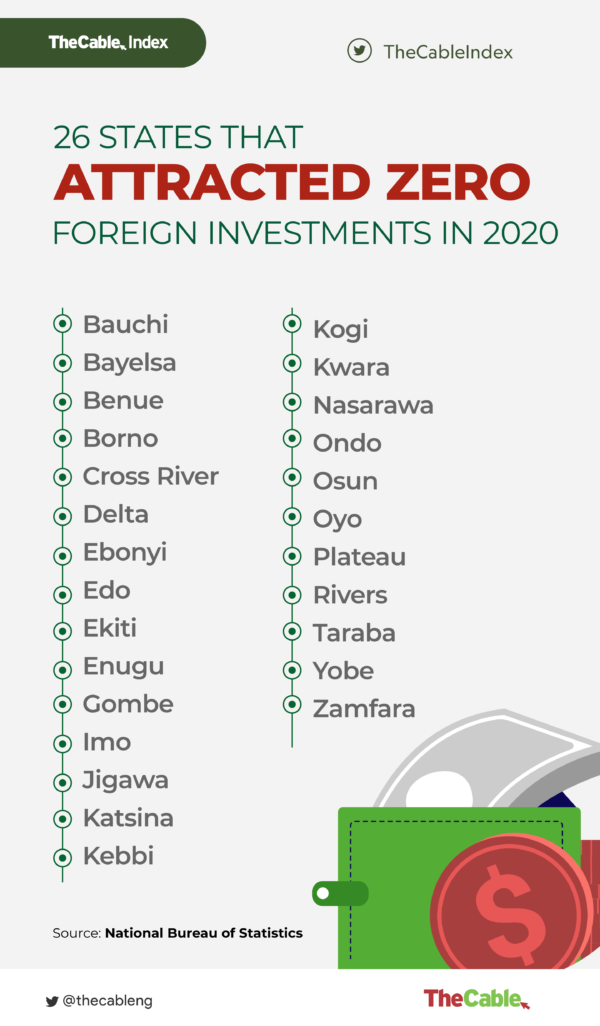
Advertisement
It is expedient to note that 11 of these states also failed to attract foreign investments in 2019.
These states are Bayelsa, Ebonyi, Ekiti, Gombe, Jigawa, Kebbi, Kogi, Plateau, Taraba, Yobe and Zamfara.

Advertisement
It is also important to note that this report is different from the investment announcement report published by the Nigerian Investment Promotion Council which is only based on investment announcements and the authenticity of the investment announcements has not been independently verified by the NIPC.
In December 2020, the NIPC reported that investments worth $1 billion were announced in Kogi in the third quarter of 2020, the highest in the country.
Lagos remains an investor’s favourite
Lagos outshined nine other states and the federal capital territory (FCT) to top the list of states that attracted the most investments in 2020.
Advertisement
Nigeria’s commercial city attracted $8.31 billion in investments, representing 85.7 percent of the total capital inflow into the country.
Abuja (FCT) emerged second top investment destination with $1.27 billion, while Abia came in third with $56.07 million.
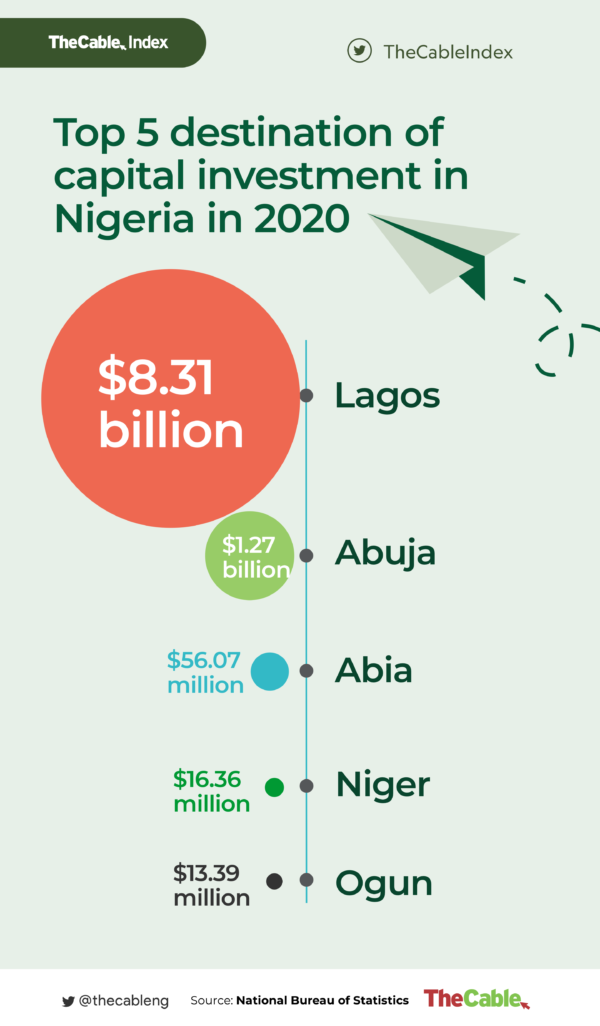
Other states that attracted foreign investments in 2020 are Niger ($16.36 million); Ogun ($13.39 million); Anambra ($10.02 million); Kaduna ($4.03 million); Sokoto ($2.50 million); Kano ($2.38 million); while Akwa Ibom and Adamawa received $1.05 million and $0.02 million foreign investments respectively.
Advertisement
Out of 65 countries that invested in Nigeria, the United Kingdom emerged as the top source of capital investment in 2020 with $4.17 billion.
The United Arab Emirates (UAE) followed with $899.44 million; Netherlands ($890.58 million); and South Africa with ($875.99 million).
Advertisement
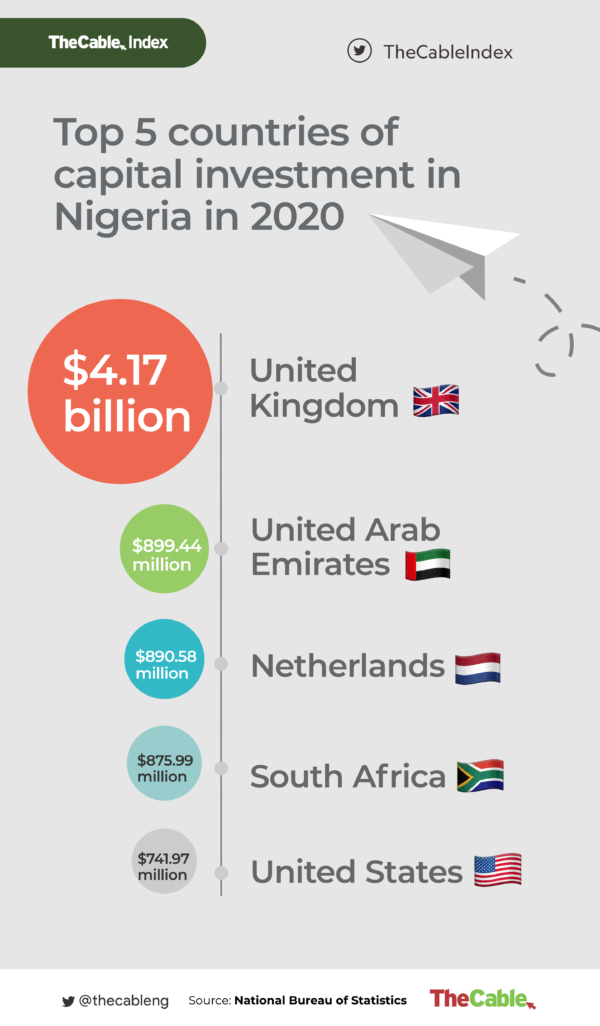
Nigeria’s economy was badly affected by the pandemic alongside the rest of the world.
Advertisement
The total capital importation fell by 59.65 percent to $9.68 billion in 2020 from the $23.99 billion in 2019.
However, Akin Oyebode, the Ekiti state commissioner for finance and economic development, says the methodology for gathering the data is flawed.
Advertisement
“The methodology is flawed, tired of repeating it. The methodology focuses on the registered address importing capital. So if you’re investing in Kano, but your address states Abuja, that’s where it’s recorded for,” he responded when questions were asked about the state’s investment status.
Add a comment
